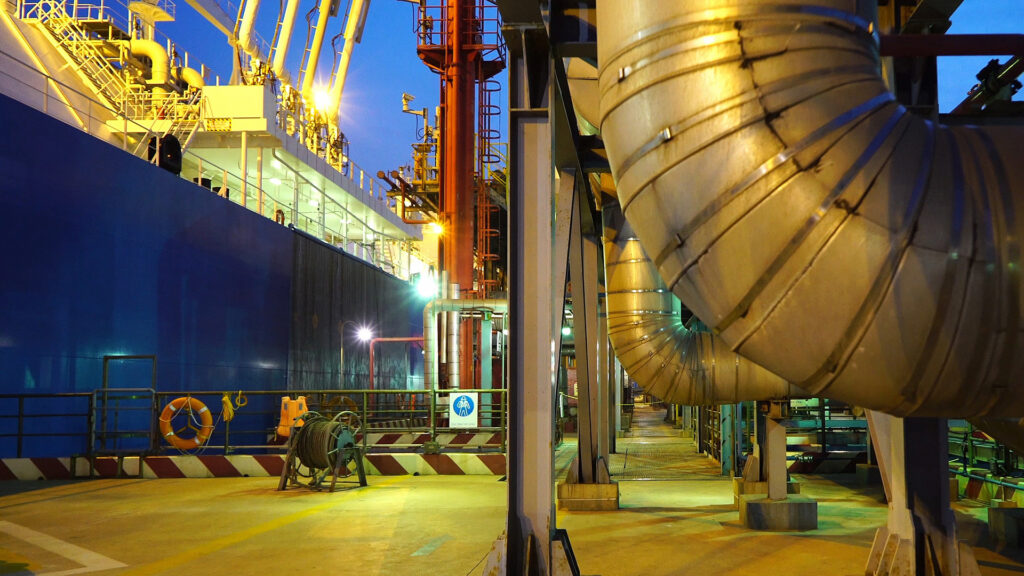The Competition and Markets Authority’s Review of the Liner Consortia Block Exemption Regulation: An Update
In August 2022, we published a briefing looking at the European Commission’s (the “Commission”) review of the Liner Consortia Block Exemption Regulation (“CBER”), and the UK Competition and Markets Authority’s (“CMA”) review of the retained CBER.1
The CMA has now concluded its review and published its proposed recommendations, which are currently the subject of a consultation. This briefing will provide an update on the CMA’s review process and summarise the CMA’s proposed recommendations to the Secretary of State regarding the future for the exemption in UK law.
What is the CBER?
The CBER is a long-standing feature of EU competition law, which provides an exemption from competition rules for liner shipping consortia which meet certain conditions. This exemption is known as the “safe harbour”, and is intended to increase efficiency, improve vessel capacity management, reduce costs, and provide associated environmental benefits.
When the UK left the EU, the CBER was retained in UK law. The CMA has undertaken to review all of the retained block exemption regulations as they expire, and make recommendations to the Secretary of State as to the best approach for the UK going forwards. When it announced its review in August 2022, the CMA said that it intended “to assess whether the retained CBER meets its intended purposes” and that it would “take account of specific features of the UK economy … [and] the interests of UK businesses and consumers.”2 The retained CBER will expire on 25 April 2024, having last been renewed by the Commission in 2020. The Commission and the CMA are currently undertaking separate reviews of the CBER in parallel.
The CMA’s review
Following the announcement of the review, the CMA met with key stakeholders to gather views on the retained CBER as it currently operates. This included representatives from the shipping and maritime logistics sector, such as liners, port operators, shippers, freight forwarders and trade associations.3 The CMA has stated that while UK-specific issues were important in its review, the international nature of the industry means that it has also looked at the reviews into similar exemptions undertaken by other competition authorities around the world. The review also highlighted that approximately 70% of UK liner capacity is operated under a consortium agreement, underlining the importance of this review to the industry.
The CMA noted that since the last review of the CBER carried out by the Commission in 2020, the industry has experienced significant volatility, attributed largely to the Covid-19 pandemic. During the peak of the pandemic, global supply chains were severely affected by lockdowns worldwide, while reliability and on time performance fell and shipping prices increased considerably. These effects are still being felt today, although rates have been reduced significantly, and the CMA made this a focus of its review.
Industry Feedback
Those who support the CBER often argue that it increases efficiency and lowers costs. As vessel sizes have increased, participation in a consortium (or indeed, consortia) has become more important for liners, given that they operate in a capital-intensive and highly cyclical industry. Proponents argue that consortia allow for optimised routes and more effective capacity management, which also result in fuel savings. These efficiencies create costs savings, which liners argue are passed on to their customers and ultimately, end consumers, while still enabling competition on price. Liners and trade associations echoed these arguments in their feedback to the CMA on the operation of the retained CBER, noting that it is a long-standing feature of the industry.
Meanwhile, downstream shippers and freight forwarders tended to raise concerns about the operation of the retained CBER. They considered that it disproportionately benefits consortia members who already had strong market positions. Freight forwarders in particular argued that terminal operators may be disadvantaged by vertically integrated liners favouring their own downstream services. There were also specific concerns raised around data exchanges and the ability of liners to access commercially sensitive data across the supply chain gained via vertical integration. Liners, meanwhile, submitted that since the retained CBER focuses on horizontal cooperation, it is not the most appropriate tool to resolve any perceived issues caused by vertical integration.
Some stakeholders also argued that the 30% market share threshold, under which a liner must stay in order to benefit from the exemption’s “safe harbour”, is routinely breached. These stakeholders attributed this to the difficulties in establishing precise market shares due to a lack of accurate data and the overlapping memberships of different consortia.
The CMA’s proposed recommendation
The CMA has concluded that the exemption “remains a relevant and useful tool for businesses that increases legal certainty compared to a situation where businesses would have to rely solely on self-assessment.”4 So, it is proposing to recommend to the Secretary of State that upon its expiry, the retained CBER is replaced with a Consortia Block Exemption Order (“CBEO”) tailored to UK needs. This CBEO would be broadly similar to the retained CBER, with small amendments to reflect market developments. The CMA was not convinced by arguments that the retained CBER, rather than the pandemic, caused the spike in shipping rates and increased delays, as freight rates have gradually decreased over the course of 2022. The CMA, will, however, continue to monitor developments here.
The review also highlighted the importance of continuity and legal certainty, noting that Hong Kong and Singapore have recently renewed their own regulations in this area, and that the EU is also reviewing the CBER. The CMA explained it was keen that any changes in the CBEO should not harm the UK shipping industry or put UK ports at a competitive disadvantage to their European neighbours. Some stakeholders had suggested that legal certainty could be achieved through providing sector-specific regulation or guidance, or even through the use of general competition law, but the CMA did not feel that this would be appropriate.
What changes is the CMA proposing?
As mentioned above, the CMA is proposing to recommend that the Secretary of State adopt a new CBEO on largely the same terms as the retained CBER, with a few small amendments. We outline these proposed amendments below.
The review recommends updating the definition of “computerised data exchange system” in Article 3, in order better to reflect recent technological developments. The CMA is seeking views on how this definition should be updated.
There are no changes proposed to the list of hardcore restrictions in Article 4, which strictly prohibits price fixing, the limitation of capacity or sales except for capacity adjustments in response to fluctuations in supply and demand, and the allocation of markets or customers.
There are no changes proposed to the maximum market share threshold of 30% required to benefit from the “safe harbour” in Article 5. The CMA did not receive any specific proposals for alternative thresholds, or any strong evidence to depart from the current thresholds.
There are no changes proposed to the right to withdraw from a consortium without penalty in Article 6.
The CMA is proposing that the CBEO should not have a pre-fixed duration. This is so that a review can be carried out at an early stage of the CBEO’s life “if market circumstances or the wider international regulatory landscape change[s]”.5 In any event, there is a statutory requirement for the CBEO to be reviewed within 5 years of it entering into force. The review highlighted the need for CBEO to be “a fit-for-purpose tool for a post-pandemic market and, as far as possible, coherent with equivalent regulations that are in place in nearby jurisdictions given the UK’s integration within wider European trade routes”.6
The review is also proposing that the CBEO includes a one year transition period, during which agreements already in force and which meet the requirements of the retained CBER would continue to benefit from the “safe harbour” for one year. This would allow for continuity, and would give liners the opportunity to review and revise their agreements as necessary in order to comply with the new CBEO.
As with previous Block Exemption Orders which the UK has introduced since Brexit, the CMA is proposing that the CBEO should include a provision to allow it to withdraw the benefit of the safe harbour in individual cases. This power was included in the Vertical Agreements Block Exemption Order 2022, as well as the Research and Development and Specialisation Block Exemption Orders 2022. This power is proposed “to ensure that the ‘safe harbour’ is only available for those agreements that satisfy the conditions for exemption under section 9”7 of the Competition Act 1998 (“the Act”). It will only be used in exceptional circumstances and the CMA will be required to give written notice of its intention to withdraw the benefit of the exemption and to consider any representations made by affected parties.
Finally, the CMA is also proposing a new obligation for consortia members to provide information within 10 working days to allow it to assess if the agreement in question meets the criteria for exemption under section 9 of the Act. It would also enable the CMA to investigate cases where general competition law concerns arise from the operation of consortia agreements. Failure to provide the information sought without reasonable excuse could result in the withdrawal of the benefit of the safe harbour.
Next Steps
The CMA is currently consulting on the proposed changes via a series of policy questions. This consultation is open for responses by email to cberreview@cma.gov.uk, until 17:00 GMT on Thursday 23 February 2023. Further details on the review and the policy questions can be found in the consultation document.
The CMA will then consider the consultation responses before making a final recommendation to the Secretary of State in due course.
Meanwhile, as we reported in August 2022, the Commission held a call for evidence on the renewal of the CBER for the EU, which closed in October 2022. As of the time of writing, there has not yet been a follow up communication from the Commission on the future of the CBER in the European Union.
Footnotes:
- https://www.hfw.com/insights/European-Commissions-Review-Of-The-Liner-Consortia-Block-Exemption-Regulation/
- https://www.gov.uk/cma-cases/liner-shipping-consor…
- CBER proposed recommendation consultation document (publishing.service.gov.uk)
- Ibid
- Ibid
- Ibid
- Ibid
Download a PDF version of ‘The Competition and Markets Authority’s Review of the Liner Consortia Block Exemption Regulation: An Update’










